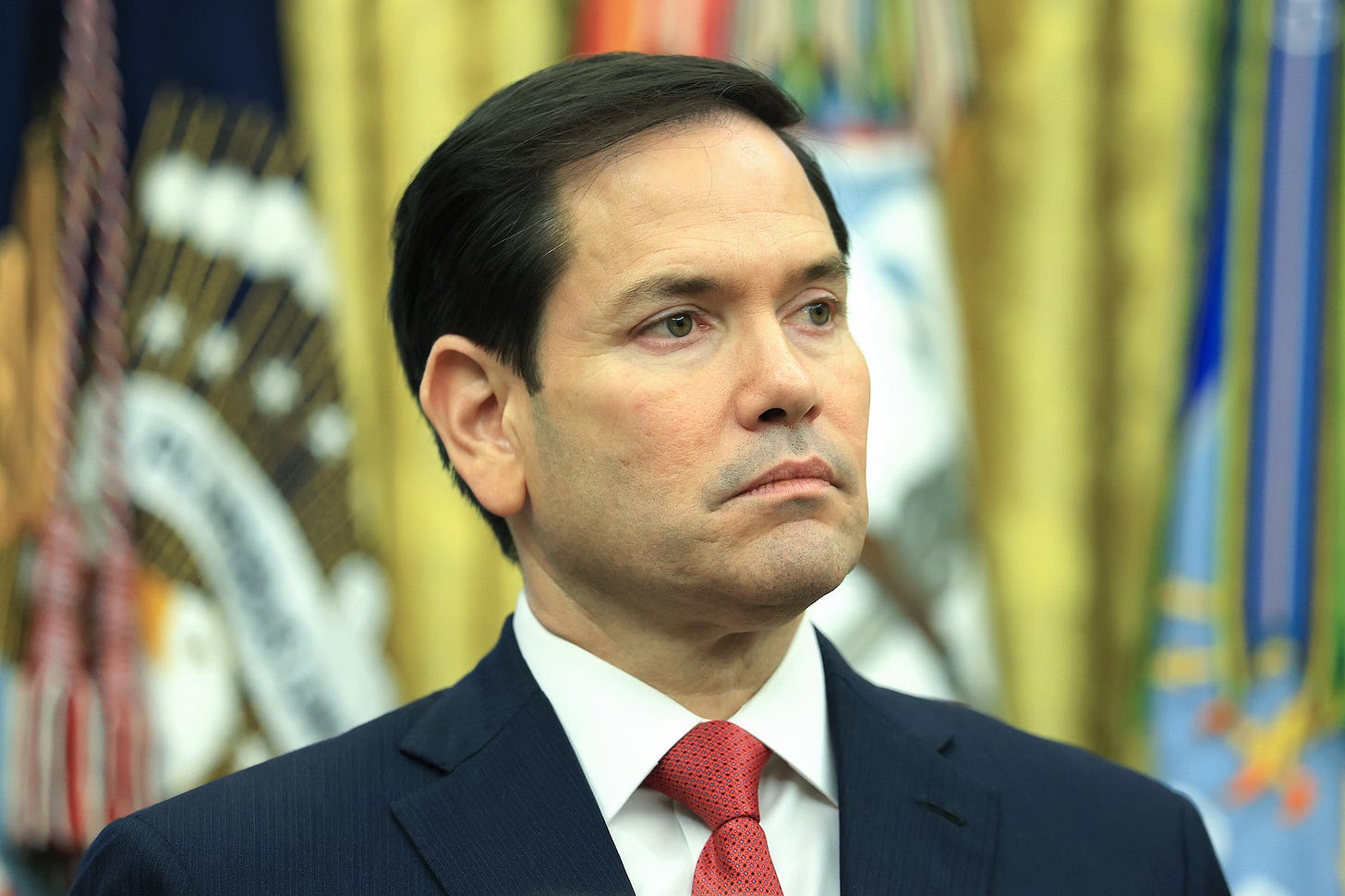Rubio’s policy of targeting student activists faces exposure in 9-day trial
A lawyer for the academic groups who sued Rubio told All Rise News that the trial is revealing information about the policy previously hidden from the public.
This trial is one of the cases on “Rising This Week,” our regular listings of notable court proceedings, protests and more. Paid subscribers get the full column every week, including instructions on how to virtually connect to certain trials like this one.
A nine-day trial starting that started this week in Massachusetts could expose the origins of the Trump administration’s policy of targeting student protesters for arrest, detention, and deportation for their pro-Palestinian views, potentially revealing new information about Secretary of State Marco Rubio and others.
“Right now, much of what we've learned from discovery is under seal, and some of that may remain so during the trial,” the Knight First Amendment Institute’s staff attorney George Wang told All Rise News in a phone interview on Friday. “I think one of the things to watch out for in the trial is what comes out about this policy and how it's been implemented throughout the Trump administration.”
In March, five academic advocacy groups led by the American Association of University Professors sued Rubio, Homeland Security Secretary Kristi Noem, and other prominent Trump administration officials inside a federal court in Boston, asking a judge to find the targeting of student activists as unconstitutional under the First Amendment. It’s not just students who are at risk.
On the first day of trial on Monday, two professors already told the judge that they have felt a chilling effect: Megan Hyska, a philosophy professor at Northwestern University, and Nadje Al-Ali, an anthropology and Middle East studies professor at Brown University, testified that their academic freedom has been impinged. Hyska decided not to publish an op-ed, and Al-Ali pulled out of research fellowships abroad.
“A real sense of terror”
Since that time, other federal judges across the country have freed Columbia University students like Mahmoud Khalil, Mohsen Mahdawi, and Yunseo Chung, finding that the government likely retaliated against them for their speech. Other judges issued similar findings with Tufts University doctoral student Rumeysa Ozturk and Georgetown University scholar Badar Khan Suri.
This will be the first case, however, to examine the Trump administration’s policy as a whole.
None of the prominent students whose cases received national attention will be witnesses, but Wang said that other students will testify that their examples sent a chilling effect across academia.
“They feel a real sense of fear, a real sense of terror, that they could be next — that they could be arrested, detained or deported just for their lawful political expression,” Wang said.
The case will be a bench trial before U.S. District Judge William Young, a Ronald Reagan appointee who wrote before trial that he will not tolerate any witness intimidation.
“The plaintiffs and their witnesses may fully participate in the trial process without fear of retribution knowing they are protected by this Court's order,” Young wrote late last month. “Indeed, were there to be any violation traceable to any of these defendants, it would prove the plaintiff's case.”
“This policy will not stop with foreign students”
Wang said that the chilling effect extends both to noncitizen witnesses and those who are citizens, in the wake of Trump’s birthright citizenship ban and his Justice Department’s memo on “prioritizing denaturalization.”
“I am a naturalized citizen, and when I myself saw Mahmoud Khalil — a green card holder, a legal permanent resident — arrested, detained, moved to Louisiana, put through these proceedings, I felt a lot of personal fear too,” Wang said. "I think it's completely natural for even naturalized citizens to really be concerned about where we're going.”
As radical as the Trump administration’s immigration policy is, Wang believes his agenda will only get more draconian.
“I think this policy will not stop with foreign students,” Wang said, noting the progression so far from visa holders to green card holders.
Senior Justice Department lawyer Brett Shumate issued a memo listing 10 circumstances where immigration authorities would pursue denaturalization.
“I think if the government can revoke someone's citizenship on foreign policy, there’s no reason why this would be limited to people who participate in pro-Palestinian protest either,” he said. “So I think there's a lot of legitimate fear from many.”
The ongoing trial began on Monday and will continue through at least next week.
You can request virtual access to the proceedings by clicking here and filling out the form and selecting Judge Young from the drop-down menu.




Thanks for the heads-up, Adam. IMHO, this is a very important case concerning the origins of the policy that's leading to all of these arrests and detentions. It's high time the bullshit behind these actions sees the light of day. Thanks again!